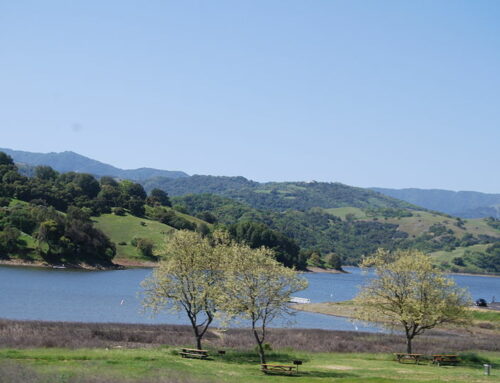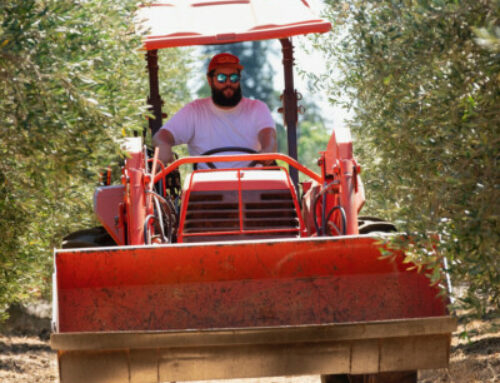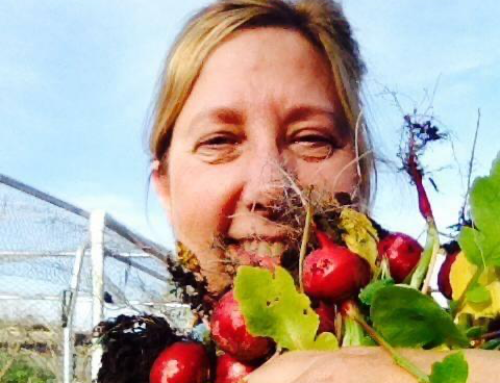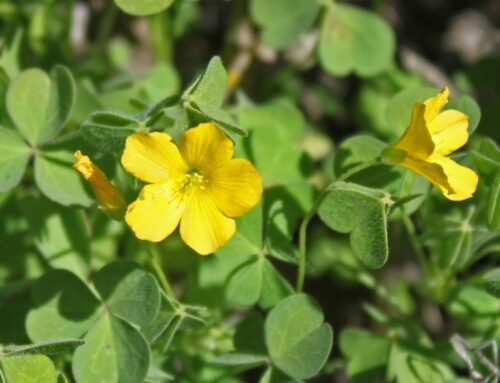Basil is a good repellent for flies and mosquitoes.

Basil downy mildew is a devastating disease, resulting in infection and complete loss of the plant.
Photo courtesy
vegetablemdonline
By Sharon McCray
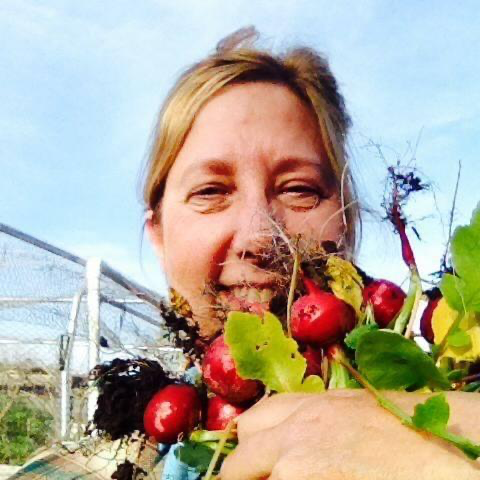
Sharon McCray
Is there any more magical herb than basil? It is one of the best, in my opinion, herbs for the home gardener. Easy to grow and harvest, so very versatile and simple to preserve. So many every day and complex dishes include basil as a primary seasoning. In Santa Clara County we consider basil an annual plant, but there are some perennial varieties.
Basil is a tender tropical plant easily started from seed. It will not tolerate cold weather in the least and is best planted when the soil and ambient temperature is moderately warm. By cutting the bottom off a gallon milk jug and placing it over tender plants, you can create a mini greenhouse that will help promote growth until the plant is established. It is important to leave the cap off during the day, as temperatures inside the container will rise rapidly. For best results, plant in moist, rich well drained soil with a pH between 6.0 and 7.5. It always seems to appreciate a mild application of a well balanced fertilizer. Coffee grounds are a good source of nitrogen.
One real bonus in growing basil is that it is not a favorite of deer and is also a good repellent for flies and mosquitoes. A planter of basil on a picnic table will help control mosquitos.
There are dozens of varieties of basil including Genovese, Thai, Lemon, African Blue, Greek and Holy basil, aka Tulsi. All of these are great for culinary use, however, I enjoy using them as border plants along the walkway to my front door. They always smell so intense and are capable of adding the right touch of color to a sometimes dull corner. Basil is one of those plants that will thrive inside your home in a sunny window as well as outside in a bright garden.
It is important to pinch back the tips of the plants to stimulate branching and new growth. While bees adore the flowers, which can also be used in cooking, I prefer to keep plants smaller. Thai Basil flowers a bright red and can provide exceptional food for bees, so I don’t pinch them off.

There are several varieties of Greek basil, all with the same characteristics of small leaves and strong flavor. Aristotle basil is my preference as the leaves are small and easy to harvest, and most importantly, do not need to be sliced or cut to be used. Greek basil can only be propagated from cuttings.
African Blue Basil is an unusual plant as it is considered sterile and cannot be propagated by seed either. The flowers on African Blue Basil seem to attract more beneficial and pollinating insects than any other plant in my garden. The flavor is not as sweet as Genovese but still complements any dish. It does carry a slight camphor scent which might enhance its ability to attract pollinators.
Lemon Basil, sometimes referred to as Indonesian basil, actually contains citral and limonene compounds and smells citrusy as its name implies. Using Lemon Basil in dishes such as citrus salads and fish dishes can perk up the taste and appearance of your meal.
Holy Basil is considered a sacred basil in Hindi and a perennial breed from India. It’s used primarily for worship and in Thai cooking.
Sharon McCray is a California native living in Santa Clara County since 1959. She became certified as a University of California cooperative extension master gardener in 1992 and a UCCE master naturalist in 2015. She hosts a radio show on KKUP public radio and is now retired.



